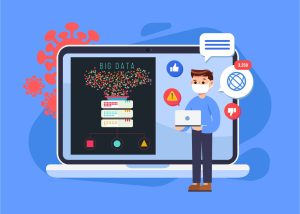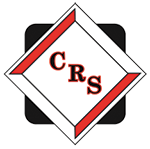Picture a hospital overflowing with patient charts. It’s a sea of information that could revolutionize healthcare. But these records remain a mystery until they are organized. This is where clinical data abstraction services come in. They act as the key that unlocks the value of medical records. This blog will discuss how clinical data abstraction acts as a savior to maintain unprocessed data.

Why do Hospitals Need Data Abstraction Services?
Hospitals and clinics generate a constant flow of medical information. Patient charts, doctor’s notes, lab results, discharge summaries—the data is vast. But it’s often raw and disorganized. Analyzing it directly would be time-consuming and error-prone. Enter in the Clinical Data Abstraction Specialists. They are skilled. They are the bridge between raw medical records and usable information. They review patient charts carefully. They use their expertise to extract specific details and put them into a standard format.
The Data Abstraction Process
Clinical data abstraction is a blend of art and science. Here’s a glimpse into the process:
- Understanding the Source Material is key: Clinical data abstraction specialists need to know medical terms and coding systems well. They must have knowledge of multiple medical record types. These include electronic health records (EHRs) and paper charts. They must know how to navigate them quickly.
- Extracting the Essentials: Abstraction specialists go beyond simply reading medical records. They actively analyze the information, identifying key details according to pre-defined criteria. This critical thinking needs close attention to detail. It also needs the ability to interpret doctor’s notes. These notes are often handwritten and cryptic.
- Applying the Code: Once they identify the essential information, it is translated into standardized codes. established systems like ICD-10 are used for diagnoses and CPT for procedures. This ensures consistency and allows for easy comparison across different datasets.
- Accuracy is Paramount: Even minor errors in data abstraction can have significant consequences. Abstraction specialists undergo tough training. They use careful quality control measures. The measures ensure the accuracy and completeness of the abstracted data. This might involve rechecking their work. They might have another person review their findings. Or, they might use specialized software to find potential errors.
Impact of Clinical Data Abstraction
Investing in clinical data abstraction services has many benefits. The benefits can be attributed to patients, researchers, and the healthcare system as a whole.
- Improved Patient Care: By studying trends in summarized data, researchers can find patterns. They can use these patterns to make new treatment strategies or improve existing ones. This can lead to more effective care for patients with specific conditions.
- Enhanced Research & Development: Abstracted data fuels medical research. It allows researchers to compare data across different institutions. They can also track disease progression over time. And, they can test the effectiveness of new medications in trials. This ultimately leads to better treatments and improved public health outcomes.
- Boosted Efficiency & Cost Savings: By spotting patterns in use from abstracted healthcare data, hospitals, and clinics can allocate resources better. They can also reduce unneeded procedures. This translates to cost savings for the healthcare system and potentially lower insurance premiums for patients.
- Quality Assurance & Monitoring: Abstracted data helps healthcare organizations monitor the quality of care provided and allows them to determine which areas require improvement. It ensures patients get the best treatment.
Investing in the Future of Healthcare
Clinical data abstraction is a cornerstone of evidence-based medicine. It empowers healthcare professionals. They make informed decisions based on real-world data, not just intuition or tradition. Healthcare is changing. Data abstraction will become more critical in the following ways:
- Personalized Medicine: By analyzing patient data, doctors can tailor treatments to a patient’s needs and genes.
- Precision Public Health: Data can help public health officials. It lets them find and address emerging health threats better.
- Value-Based Care: Healthcare is shifting to a value-based model. Providers are rewarded for delivering quality care and improving patient outcomes, not the volume of services. Data can help track patient outcomes. It can show where care can be improved. This lets healthcare systems provide cost-effective, high-quality care.
More Than Just Data Cleaning
Clinical data abstraction services offer more than just data cleaning and coding. Here are some additional services they provide:
- Data Enrichment means adding information from external sources, like patient registries. It can enrich data, giving a fuller picture. Imagine adding a patient’s socioeconomic background to their medical history. This can help identify social determinants of health that might impact their well-being.
- Data Validation: Specialists double-check your data. They ensure it is accurate and complete. This gives you reliable information for clinical decisions and research.
- Reporting & Visualization can present the changed data in clear reports and visualizations. These are charts and graphs that doctors, researchers, and administrators can easily understand. Imagine turning complex medical data into visuals. The visuals reveal trends and insights. They allow for quicker, more informed action.
Empowering Healthcare with Informed Decisions
Partnering with clinical data abstraction specialists is about more than just organizing medical records. It’s about unlocking their potential to revolutionize patient care and advance medical research. Ultimately, it will shape a healthier future for all.
Cardiac Registry Support has been clinician-owned since 2008. It offers expert data abstraction with a dedicated team that includes nurses, doctors, and IT specialists. The team ensures the highest quality and accuracy (97% IRR) for your healthcare data.

